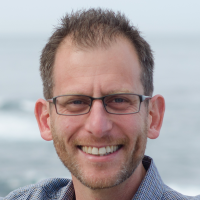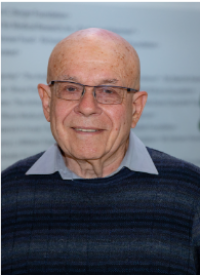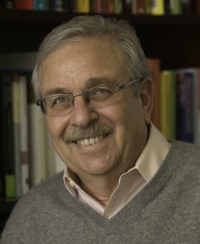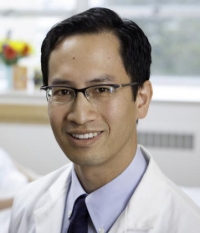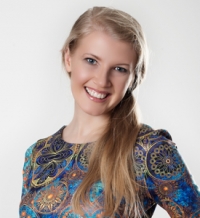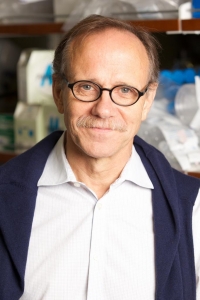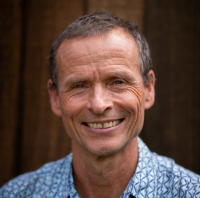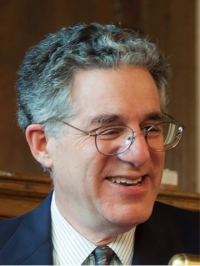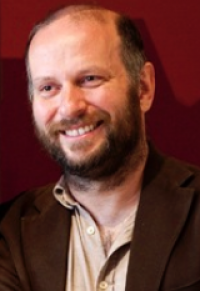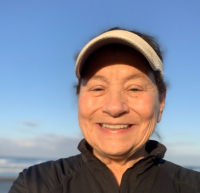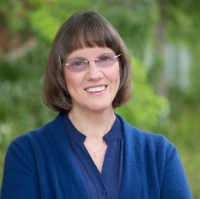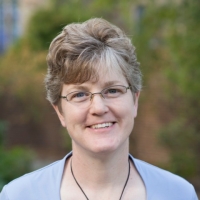How Language Evolves
Biographical Sketches: Co-Chairs
Massachusetts Institute of Technology
Roger Levy is Associate Professor of Brain and Cognitive Sciences at the Massachusetts Institute of Technology. Prior to his appointment at MIT, he was faculty in the Department of Linguistics at UC San Diego for nine and a half years. His research focuses on theoretical and applied questions in the processing and acquisition of natural language. Linguistic communication involves the resolution of uncertainty over a potentially unbounded set of possible signals and meanings. How can a fixed set of knowledge and resources be deployed to manage this uncertainty? And how is this knowledge acquired? To address these questions, Levy combines computational modeling, psycholinguistic experimentation, and analysis of large naturalistic language datasets. This work furthers our understanding of the cognitive underpinning of language processing and acquisition, and helps us design models and algorithms that will allow machines to process human language.
University of California, San Diego
David M. Perlmutter is a professor emeritus in the Department of Linguistics and the Interdepartmental Program in Cognitive Science at UC San Diego. His research in linguistic theory addresses the question of how structural differences among human languages can be formally characterized, as well as the limits to such variation. Perlmutter has worked extensively on the syntax of a wide variety of languages and especially on the role of grammatical relations in clause structure. He has also worked on the phonology and morphology of American Sign Language (ASL). He has served as president of the Linguistic Society of America (LSA) and on the editorial boards of four professional journals. Perlmutter has held fellowships from the Guggenheim and Killam Foundations, the National Endowment for the Humanities, the University of California, and the Center for Advanced Study in the Behavioral Sciences. He has held visiting professorships in France and Canada, the Edward Sapir Professorship at the Linguistic Institute of the Linguistic Society of America, and the Richard Turner Professorship of the Humanities at the University of Rochester. He is a fellow of the Linguistic Society of America and of the American Academy of Arts and Sciences.
Biographical Sketches: Speakers
Stony Brook University (State University of New York)
Mark Aronoff is a Trustees Distinguished Professor of Linguistics at Stony Brook University (State University of NY), where he has taught ever since receiving his Ph.D. from MIT. His major academic interests have been linguistic morphology, writing systems, undergraduate education, and sign language. His research has been funded by the National Endowment for the Humanities, the National Science Foundation, and the National Institutes of Health, as well as foreign and non-governmental agencies. He is a Fellow of the American Academy of Arts and Sciences, the American Association for the Advancement of Science, and the Linguistic Society of America. He has served as President of the LSA and editor of its journal, Language. For over a decade, he has worked with Irit Meir, Carol Padden, and Wendy Sandler on Al-Sayyid Bedouin Sign Language.
University of California, San Francisco
Dr. Edward Chang is a neurosurgeon at UC San Francisco specializing in the treatment of intractable epilepsy, trigeminal neuralgia, and brain tumors. His scientific research focuses upon the brain mechanisms for human speech, movement, and cognition. Chang co-directs the Center for Neural Engineering & Prostheses at UC Berkeley and UC San Francisco, which brings together engineering, neuroscience, neurology and neurosurgery to develop state-of-the-art biomedical devices to restore function for patients with neurological disabilities.
MIT
Evelina (Ev) Fedorenko is an associate professor in the Brain and Cognitive Sciences department at MIT. She received an A.B. in Psychology/Linguistics from Harvard University. She then proceeded to pursue her studies at MIT. After receiving a PhD in Cognitive Science in 2007, she stayed at MIT as a postdoc and later research scientist, funded by a K99R00 award from NICHD. From 2013 until 2019, Fedorenko held a faculty position at the Martinos Center for Biomedical Imaging at MGH, and in 2019 she moved back to MIT. Her research focuses on the language system, including its internal architecture, and its relationship with other cognitive systems. She uses behavioral, fMRI, intracranial recording, computational, and genotyping methods in healthy adults and individuals with brain disorders.
Salk Institute for Biological Studies
Fred H. Gage is a Professor in the Laboratory of Genetics and the past President (2018-2023) of the Salk Institute. He is an Adjunct Professor at UC San Diego, and emeritus Co-Director of CARTA. Dr. Gage concentrates on the adult central nervous system and unexpected plasticity and adaptability to environmental stimulation that remains throughout the life of all mammals. His work may lead to methods of replacing or enhancing brain and spinal cord tissues lost or damaged due to Neurodegenerative disease or trauma. Gage's lab showed that, contrary to accepted dogma, human beings are capable of growing new nerve cells throughout life. Small populations of immature nerve cells are found in the adult mammalian brain, a process called Neurogenesis. He is working to understand how these cells can be induced to become mature functioning nerve cells in the adult brain and spinal cord. They showed that environmental enrichment and physical exercise can enhance the growth of new brain cells and they are studying the underlying cellular and molecular mechanisms that may be harnessed to repair the aged and damaged brain and spinal cord. Gage is a member of the National Academy of Science and the Institute of Medicine.
UC San Diego
Pascal Gagneux is CARTA's Executive Co-Director, a Professor of Pathology and Anthropology, and the Department Chair of Anthropology at UC San Diego. He is interested in the evolutionary mechanisms responsible for generating and maintaining primate molecular diversity. The Gagneux laboratory studies cell-surface molecules in closely related primates species. His focus is on glycans, the oligosaccharides attached to glycolipids and glycoproteins of the surfaces of every cell and also secreted into the extra-cellular matrix. Gagneux's laboratory is exploring the roles of molecular diversity in protecting populations from pathogens as well as potential consequences for reproductive compatibility. Dr. Gagneux’s interest is in how glycan evolution is shaped by constraints from endogenous biochemistry and exogenous, pathogen-mediated natural selection, but could also have consequences for sexual selection. Dr. Gagneux has studied the behavioral ecology of wild chimpanzees in the Taï Forest, Ivory Coast, population genetics of West African chimpanzees, and differences in sialic acid biology between humans and great apes with special consideration of their differing pathogen regimes. In 2011, while Associate Director of CARTA, Dr. Gagneux helped to establish a graduate specialization in Anthropogeny at UC San Diego. This wholly unique graduate specialization is offered through eight participating graduate programs in the social and natural sciences at UC San Diego.
Tufts University/Massachusetts Institute of Technology
Ray Jackendoff is Seth Merrin Professor Emeritus and former co-director of the Center for Cognitive Studies at Tufts University. He is currently a Research Affiliate in Brain and Cognitive Sciences at MIT. He has written widely on syntax, semantics, the architecture of grammar, the evolution of language, music cognition, social cognition, and consciousness. He was the recipient of the 2003 Nicod Prize in Cognitive Philosophy and the 2014 David E. Rumelhart Prize for Outstanding Contributions to the Theoretical Foundations of Human Cognition, as well as five honorary degrees. His books include Semantics and Cognition (1983), A Generative Theory of Tonal Music (with Fred Lerdahl) (1983), Consciousness and the Computational Mind (1987), Foundations of Language (2002), A User’s Guide to Thought and Meaning (2012), and The Texture of the Lexicon (2020).
University of Edinburgh
Simon Kirby is a professor of language evolution at the University of Edinburgh and elected fellow of the Royal Society of Edinburgh. He is head of the Centre for Language Evolution, whose focus is the cultural evolution of human behavior and its impact on the biological evolution of our species. His group combines computational simulation and laboratory experiments, and has pioneered a framework known as Iterated Learning. In addition to his scientific output, Kirby collaborates with sculptors and musicians to create interactive art installations exploring issues of communication and cultural evolution in the online world. His most well known work is the BAFTA-winning Cybraphon, now part of the permanent collection of the National Museum of Scotland.
University of California San Diego
Rachel Mayberry is a Professor of Linguistics at the University of California San Diego where she is the Director of the MultiModal Language Development Lab, and an Associate Director of CARTA. Professor Mayberry investigates the structure, development, and psycho- and neurolinguistic processing of signed languages in comparison to spoken languages. Her primary research investigates the linguistic and neural underpinnings of the critical period for language using American Sign Language and deafness as the test case. In previous work she pioneered research on the relation between sign language acquisition and reading development, the co-development of gestures and syntacic acquisition in preschool children learning two languages simultaneously in the home, and how speech dysfluency appears in co-gesture expression. Professor Mayberry's work has been supported by both Canadian and American grant funding agencies and received the Distinguished Alumni Research Award from McGill University. At UCSD she is also affiliated with the Center for Research on Language, the Interdisciplinary Program in Cognitive Science, the Human Developmental Science Program, and the Joint Doctoral Program in Language and Communication Disorders.
Australian National University
Carmel O’Shannessy is a Lecturer in the School of Literature, Languages and Linguistics at the Australian National University, having moved there from the University of Michigan, where she had been since 2007. In the 1990s her background as an ESL teacher and Applied Linguist took her to work in remote Indigenous schools in Australia’s Northern Territory, in the areas of Indigenous language maintenance and education. While working in the Warlpiri-English bilingual education program in the Warlpiri community of Lajamanu she noticed what sounded like extensive code-switching by younger speakers, and with the community’s approval was keen to investigate how young people were speaking. She subsequently completed her PhD in Linguistics at the University of Sydney (Australia) and the Max Planck Institute for Psycholinguistics (The Netherlands) in 2007, with documentation of the genesis and development of Light Warlpiri, a mixed language that had recently emerged in the community. Within the areas of language contact and change and language acquisition, her research continues to document children’s bilingual acquisition and maintenance of Light Warlpiri and Warlpiri. She is especially interested in the roles of children and adults in contact-induced language change. She also documents traditional Warlpiri songs. Carmel has been involved with languages in remote Indigenous communities in Australia since 1996, in the areas of bilingual education and her current research.
Barnard College of Columbia University
Ann Senghas is a professor in the Department of Psychology at Barnard College, and for the present academic year she is a Mary I. Bunting Fellow at the Radcliffe Institute for Advanced Study. Her research focuses on the emergence of structure in a new sign language created by deaf children in Nicaragua over the past four decades. Dr. Senghas earned her PhD in brain and cognitive sciences from the Massachusetts Institute of Technology in 1995. She held postdoctoral research positions at the University of Rochester and the Max Planck Institute for Psycholinguistics in the Netherlands. Dr. Senghas’s research has been supported by the NIH since 2002.
